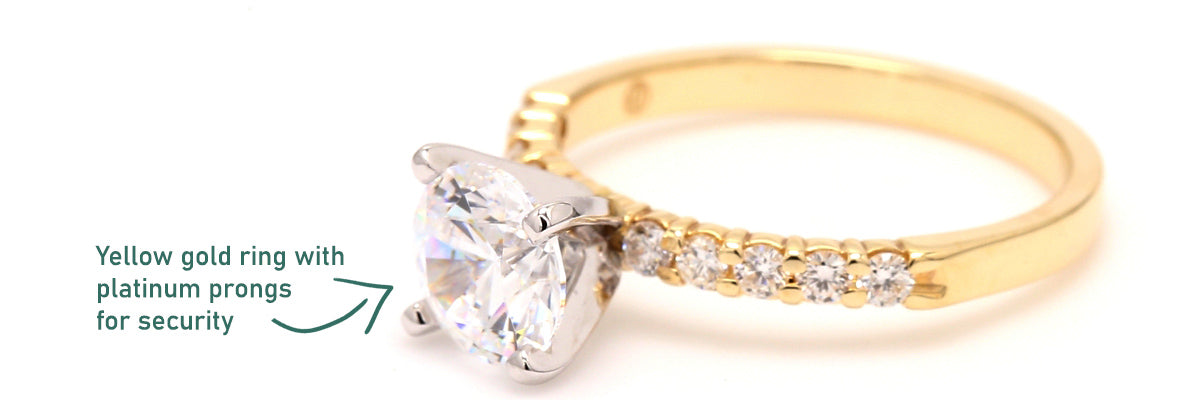Platinum vs. White Gold: Which one is right for you?
White Gold vs. Platinum
One big decision to make when selecting your engagement and wedding rings is the choice between white gold and platinum. Platinum is often seen as being the better metal, but why?
Keep reading to find out the real difference between white gold and platinum, so you can pick the metal that is best for you.
Color Differences
All gold is naturally yellow, so white gold is created by using white alloys like rhodium, palladium, or nickel mixed with the yellow gold to give a white color. You’ve probably heard for 14k gold or 18k gold and this refers to the proportion of gold to other metals.
Because yellow gold is used to make white gold, white gold is not naturally a bright white color. In order to achieve a bright white color, a process called rhodium plating is applied to the surface of the metal to enhance the appearance. This plating can wear over time, especially around harsh substances like hand sanitizer.
On the other hand, platinum is naturally white. This means that platinum will not change color over time and will not need regular rhodium plating to maintain a bright white appearance.

Durability
Another factor to consider when selecting your metal type is durability. Gold is naturally a softer, more malleable metal than platinum, so it is more likely to be bent or have a prong break. You’ll often see platinum prongs on a gold ring when to hold a significant diamond in place, because the diamond will be much more secure in platinum.
Platinum is more dense and therefore physically heavier (this plays in to the price). However, platinum is more likely to scratch and will develop a “patina” over time.

Hypoallergenic
If you have metal sensitivities, then platinum is a great choice for you. Because white gold is mixed with other metals (often nickel) it is more likely to cause allergic reactions.
Some people have found that the rhodium plating is enough to protect their skin, but others can still have issues. If you know you have a skin allergy to nickel, then platinum is your better option.
Price
As we discussed earlier, platinum is much more dense than gold. Since metal is sold by weight, platinum jewelry is naturally more expensive than gold jewelry because there is more metal weight.
Additionally, platinum has to be heated to higher temperatures and requires more specialized equipment, like the laser welder we have at Spicer Greene, so the labor cost can also be slightly higher.
However, if you consider the price of rhodium plating your white gold jewelry every year or two for the lifetime of the ring, the cost difference could eventually balance out.
So which one is better?
There is not one definitive answer to this question. Each person should consider their lifestyle, the type of work they do, budget, and preferences concerning upkeep.
No matter your choice, you will have a ring that you can love and cherish for years!

